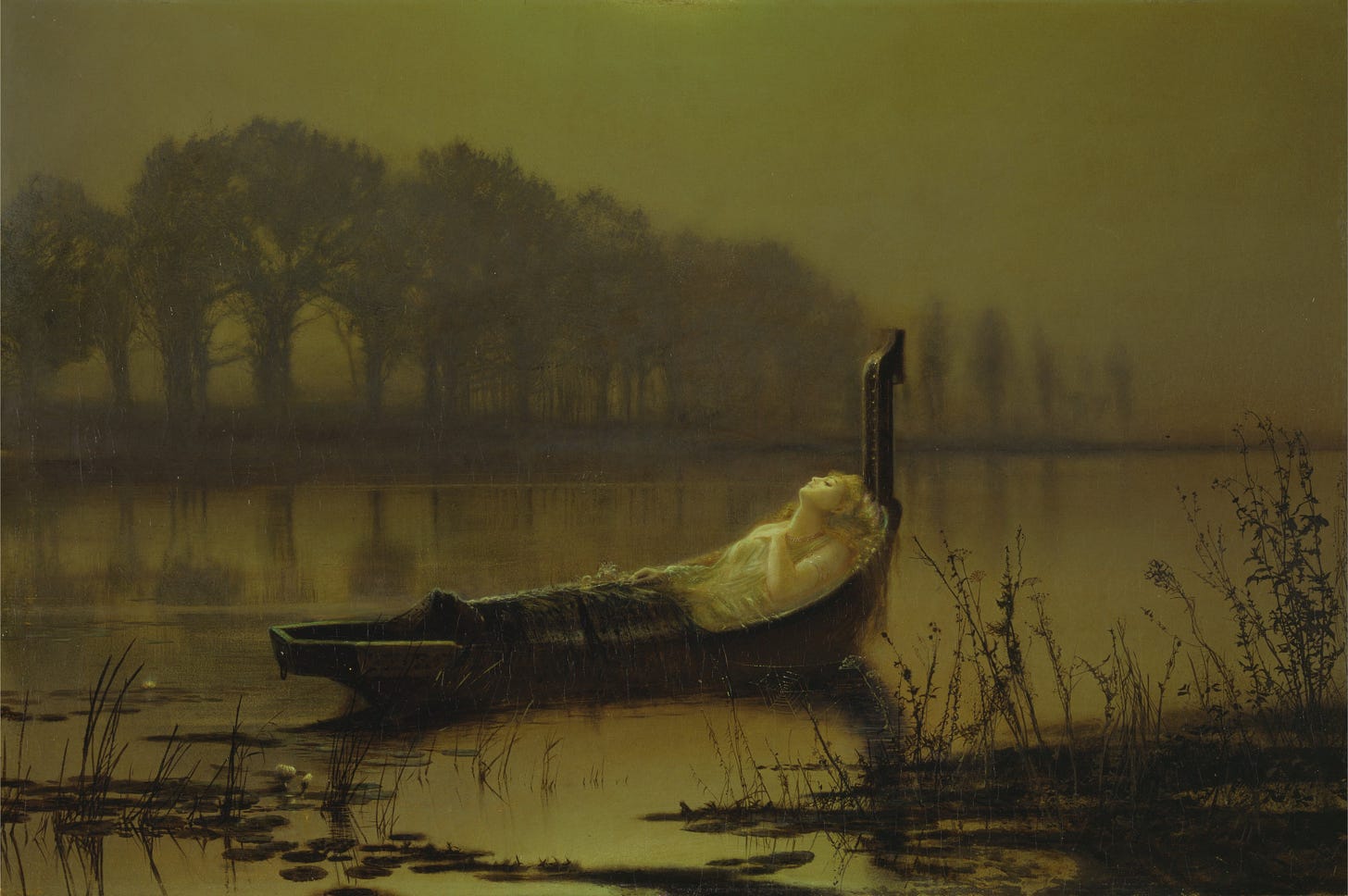Death is where we wake from dreams
> Know that your own existence is a veil concealing your path.
So while everything you believe through sensation or intellection in your waking state may be true in relation to that state, what assurance have you that you may not suddenly experience a state which would have the same relation to your waking state as the latter has to your dreaming, and your waking state would be dreaming in relation to that new and further state? If you found yourself in such a state, you would be sure that all your rational beliefs were unsubstantial fancies. It may be that this state beyond reason is that which the Sufis claim is theirs. … Or it may be that this state is death …1
Here al-Ghazali speaks of dreams, asks whether we may not wake from this one also; really there is no way of knowing what this is, whether actuality or otherwise. We dream here a while and then—where? Some sleep sweetly, only wake into nightmares. These remember themselves, encounter anew their cursed state. These the mornings after learning of a death; each day we recall anew our loss. Perhaps this the way which life will ever be in the hereafter for those that are the losers. They wake to find themselves parched, claw for water only to find it boiling; ever an icy cold keeps these in the fire. Moments ago they had dreamt themselves reading prone in a shady spot, sun blocked by a table on which sat three dates waiting—suddenly we recall our loss.
What then might be this higher state, how might we come to know? The dreamer reflects on the strangeness of beliefs now made foreign by waking reason. Last night, say, that I was an identical brother and the other was due to die; had already died, somehow. How strange to wake this morning, knowing I had thought these things; knowing I had thought them true. Perhaps they are, of course, and in some sense certainly; yet here we awaken to a higher sense in which these shapes are set aside. The Quran says much the same of those that ascribe partners to Him, of those that bear witness to His mercy and attribute it to other things—
God originates creation, then brings it back; then unto Him shall you be returned. And on the Day when the Hour is come, the guilty shall despair. They have no intercessors from among those they ascribed as partners, and they will then disbelieve in those they ascribed as partners.2
A sailor falls to his knees amidst a storm, upon arriving safely attributes this to the sturdiness of his ship. We forget that we are ever here only for being held, that had He willed it even the sturdiest ship would sink: nothing can thwart the Day, the Hour.
All is perishing but His face.3
Al-Ghazali, Deliverance from Error.
30:11-13
28:88


